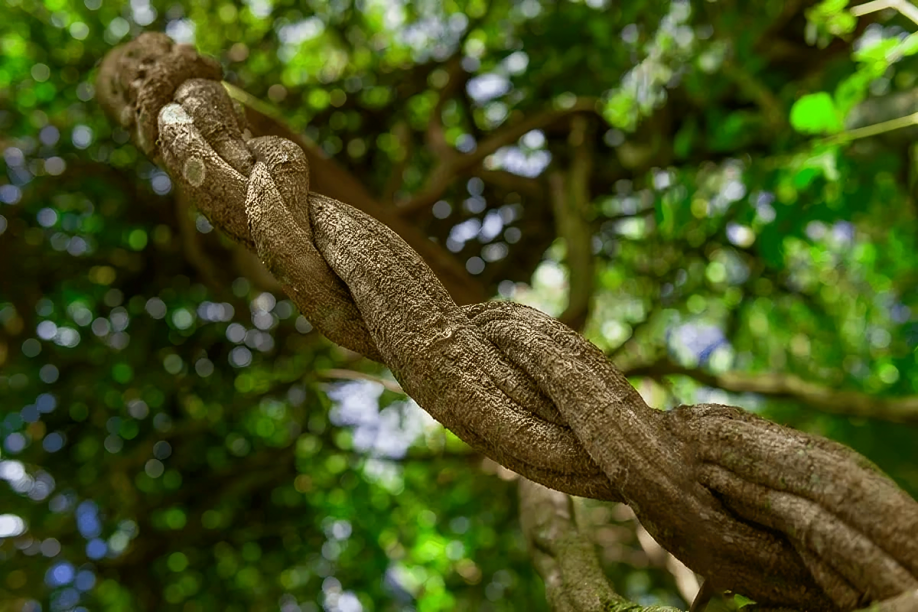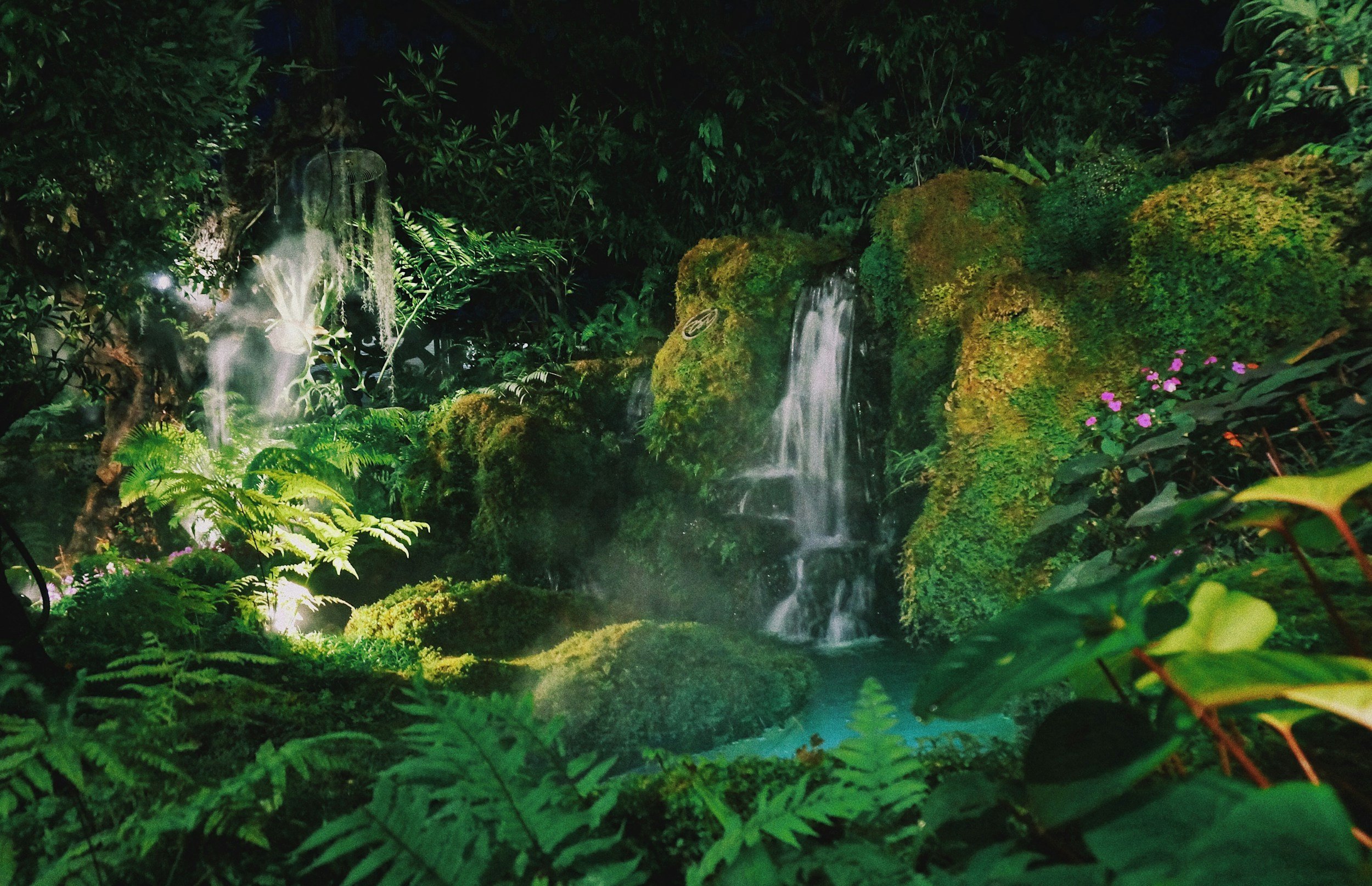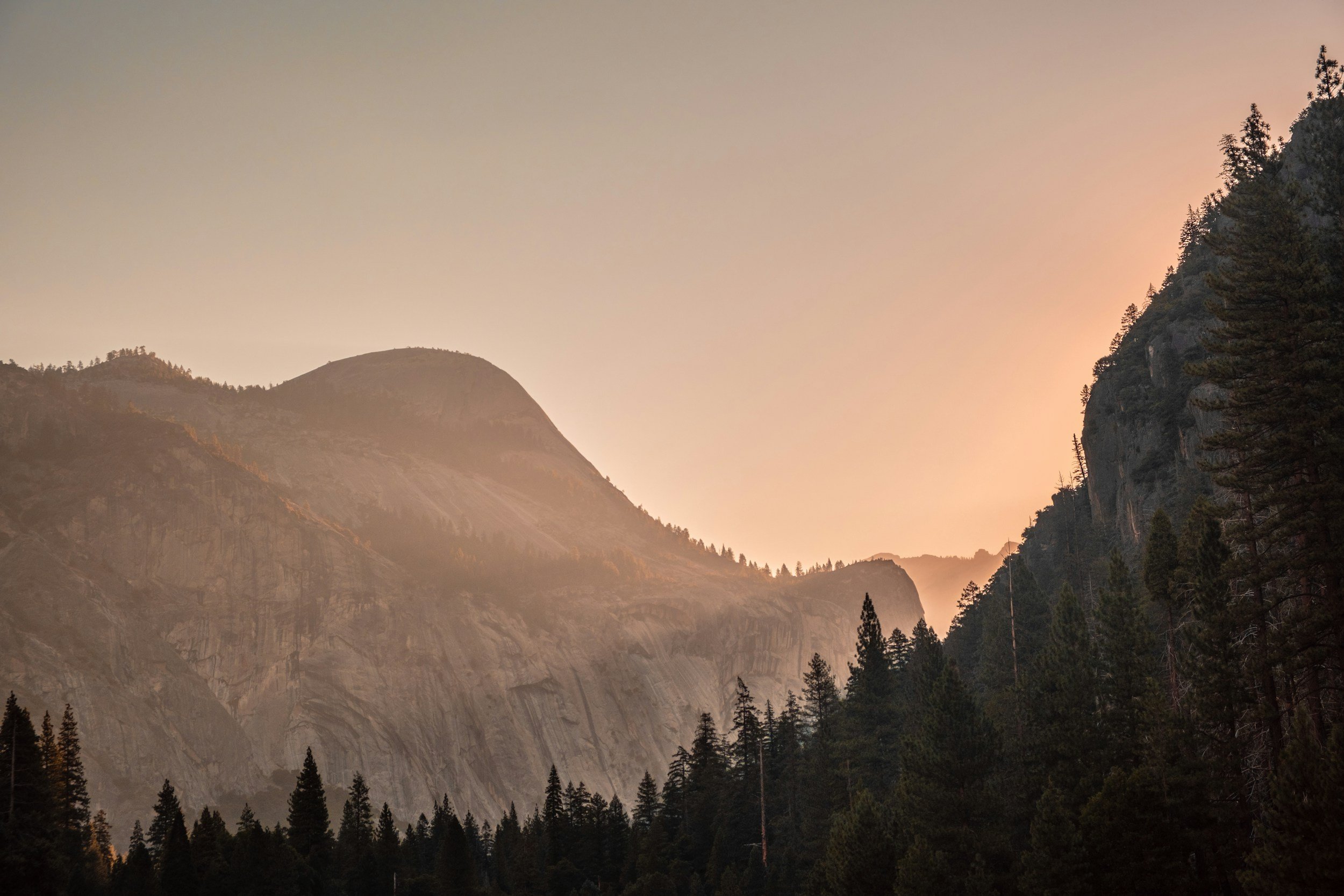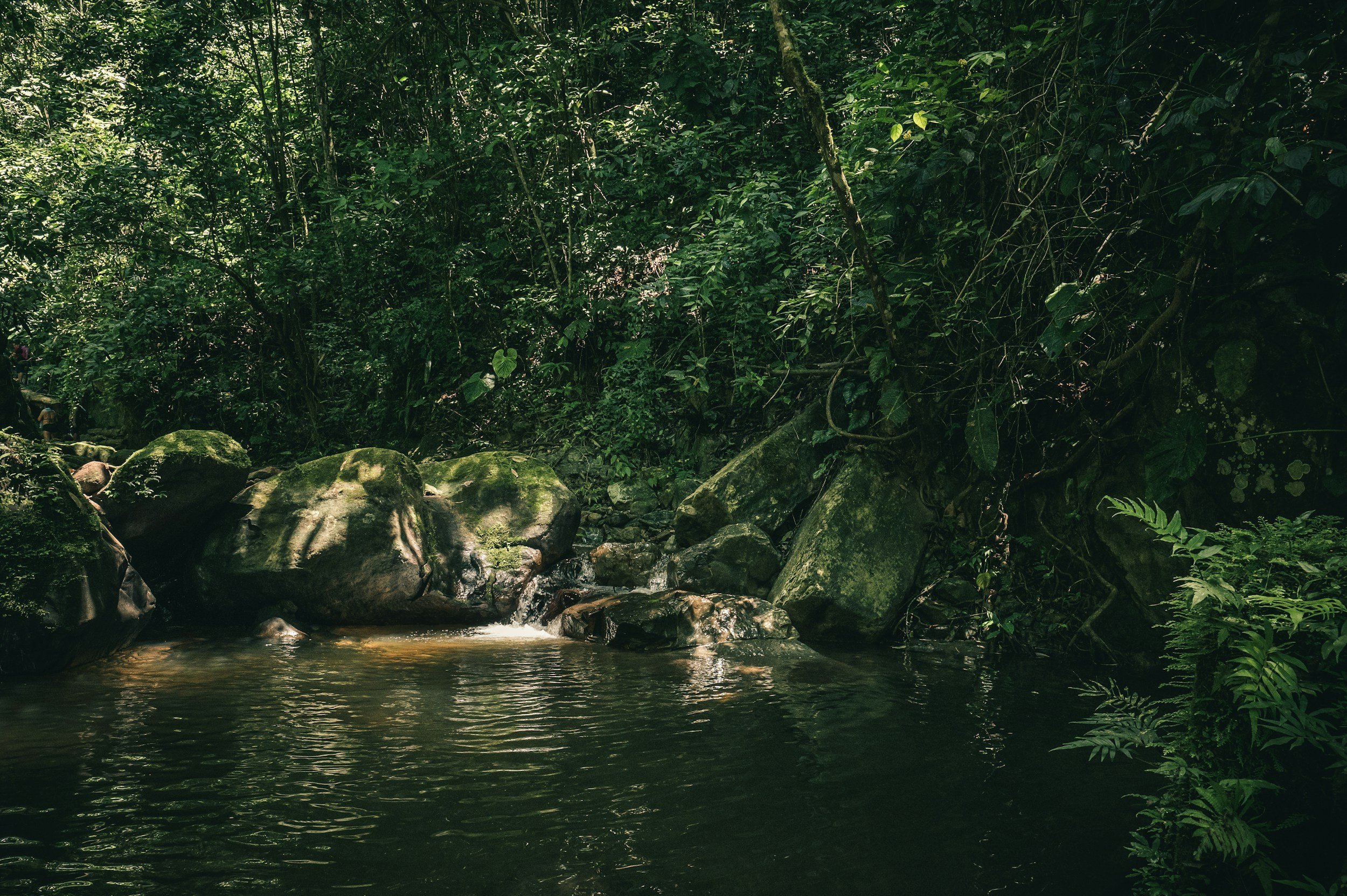
Ayahuasca
Ayahuasca is an ancient, living and intelligent spiritual plant teacher and ally.
Ayahuasca, translated to "the vine of the soul," is much more than a psychoactive brew; it is a living plant being that has guided humanity through evolutionary processes of spiritual healing and growth. Rooted in the ceremonial practices of Amazonian Indigenous cultures, ayahuasca has been an important medicine and sacramental for many, facilitating experiences that enhance ecological and spiritual consciousness. Today, as modern science begins to validate the therapeutic potential of ayahuasca, we are rediscovering what these ancient cultures have always known—ayahuasca has the capacity to promote health, occasion insight, and cultivate ecological and spiritual consciousness, helping us to reconnect with ourselves as one with each other, the planet and the cosmos.

In South America, there are different traditions that use ayahuasca to address a wide range of problems. These ailments are usually understood as physical, mental, and spiritual illnesses simultaneously: these three aspects of life are usually intertwined in traditional healing processes
— Moure W.G.
Overview
Ayahuasca is a traditional psychoactive brew originating from the Amazon basin, primarily used by Indigenous communities for spiritual, medicinal, and ceremonial purposes. It is composed of two main plant ingredients: the Banisteriopsis caapi vine, which contains monoamine oxidase inhibitors (MAOIs), and the Psychotria viridis leaf, which contains the psychoactive compound dimethyltryptamine (DMT). Together, these components create a powerful synergistic effect, enabling profound changes in consciousness, including visions, emotional insights, and spiritual awakenings.
The cultural roots of ayahuasca run deep in the Amazon rainforest, where it has been utilized by Indigenous cultures for centuries to promote healing, foster community and natural bonds, and connect with the spiritual realms. The brew is considered a sacred teacher plant that facilitates communication with the spirit world, offering guidance, wisdom, and the opportunity for insight and transformation. In recent decades, ayahuasca has gained attention in the Western world for its potential in treating a range of mental health conditions, such as depression, anxiety, PTSD, and addiction.
Engaging with ayahuasca is more than participating in a psychedelic experience; it is a deeply spiritual practice that requires respect, intention, and preparation. In traditional Amazonian contexts, ayahuasca ceremonies are typically led by shamans or curanderos, who have undergone extensive training to guide participants safely through the experience. These ceremonies often involve ritualistic songs, known as icaros, which help direct the energies of the experience and provide a framework for participants to navigate their visions.
At Psygaia, we emphasize the importance of cultural sensitivity and ethical considerations when engaging with ayahuasca. As Western interest in ayahuasca grows, it is vital to respect and honour the traditions and knowledge of the peoples who have safeguarded its use for generations. Ayahuasca is not simply a tool for self-exploration; it is a sacred teacher and ally that offers profound insights into the nature of consciousness, healing, and our interconnectedness with the Earth’s living systems and greater cosmos.

The ritual is one of the main aspects of the setting. It condenses a whole collection of features that determine the atmosphere where the experience takes place.
— Beatriz Labate
The Ayahuasca Experience
The ayahuasca experience is often described as a journey into the depths of the psyche, offering an opportunity to reconnect to a more whole ecological consciousness, allowing us to discover, heal and grow, as individuals and as an interconnected web of life.
People who have taken ayahuasca report experiencing vivid visions, emotional catharsis, and profound insights about themselves and their relationships with others and Nature. The experience can be challenging, as it often involves facing difficult emotions and memories; however, these challenges are viewed as integral to the healing process.
For many, the ayahuasca experience includes a sense of connection to the spiritual realm, where participants may encounter entities, ancestral spirits, or receive messages from the plant itself. This aspect of the experience is deeply rooted in Amazonian cosmology, where the spirit world is seen as an essential part of reality. Ayahuasca is often referred to as "the vine of the soul" for its ability to facilitate profound spiritual insights and help individuals understand their place within the broader web of life.
The Psygaia hypothesis embraces ayahuasca as a powerful plant ally for rediscovering our inherent connection to sacred intelligence of Mother Earth and Nature as a whole. In guiding us, ayahuasca helps to dissolve the ego, foster empathy, and cultivate a sense of unity with all living beings. Many users report that their experiences with ayahuasca have led to lasting changes in their attitudes, behaviours, and overall sense of purpose, particularly in relation to their relationship with the natural environment.

Psychedelic medicine has the potential to help heal the wounds of those suffering from racial trauma and bring healing to the consciousness of those who perpetrate and perpetuate racial violence.
— Monnica Williams
Historical Context
Ayahuasca has been used for centuries by Indigenous tribes of the Amazon basin, including the Shipibo, Asháninka, and Huni Kuin peoples, among others. Within these communities, ayahuasca is considered a sacred medicine, used not only for healing physical ailments but also for addressing spiritual imbalances and fostering communal harmony. The knowledge of how to prepare and use ayahuasca has been passed down through generations, with shamans serving as the primary keepers of this wisdom.
Shamans, also known as curanderos or ayahuasqueros, undergo extensive training that can take many years, during which they learn how to communicate with the spirit of the ayahuasca plant and other plant allies, as well as how to guide participants through their journeys safely. This training often involves dietary restrictions, isolation in the rainforest, and extensive ceremonies to establish a deep relationship with the plant spirits.
Ayahuasca plays a central role in Amazonian cosmology, where the physical and spiritual worlds are deeply intertwined. The brew is seen as a means of accessing the spirit world and receiving guidance from ancestral spirits, plant beings, and other entities. This spiritual framework allows individuals to understand illness not merely as a physical condition but as a manifestation of spiritual or energetic imbalance. By working with ayahuasca, individuals can gain insights into the root causes of their suffering, whether they are emotional, psychological, or spiritual in nature. The visions and experiences facilitated by ayahuasca are often interpreted through the lens of Amazonian mythologies, which see the rainforest and its countless forms of life as sentient and interconnected.
In addition to individual healing, ayahuasca ceremonies serve an important communal function. They are often conducted in a group setting, where participants share their experiences, support one another, and contribute to the collective energy of the ceremony. This communal aspect of ayahuasca use reinforces social bonds and helps maintain harmony within the community. The singing of icaros, sacred songs that are believed to channel the healing power of the plants, is an essential part of the ceremony, guiding participants through their visions and helping them to navigate challenging emotional terrain. These songs are often received by shamans during their own ayahuasca journeys and are considered gifts from the plant spirits.
The traditional use of ayahuasca is deeply embedded in a worldview that emphasizes reciprocity with the natural environment. The plants used to make ayahuasca are treated with respect, and rituals are performed to honor the spirits of the forest. This reciprocal relationship ensures that the use of ayahuasca remains sustainable and that the natural world is seen as an active participant in the healing process, rather than merely a resource to be exploited.
The spread of ayahuasca beyond the Amazon has brought both opportunities and challenges. While many individuals have experienced profound healing through the use of ayahuasca, the increasing demand for ceremonies has also led to issues of cultural appropriation, exploitation, and environmental strain on the resources needed to produce the brew. It is essential to approach ayahuasca with respect for the Indigenous cultures that have nurtured its practice and to support ethical and sustainable practices that honor their traditions.
The spread of ayahuasca to the Western world has involved both positive and negative impacts. While Western interest has led to increased awareness of ayahuasca and its therapeutic potential, it has also resulted in significant cultural appropriation and the commodification of this sacred brew. Such commodification can have detrimental effects on Indigenous communities who have long relied on ayahuasca for their spiritual and cultural practices. It is crucial to approach ayahuasca with respect for its origins and the cultural heritage of the Amazonian peoples.

With the spread of ayahuasca and its entrance into urban centers and Western cultures, a conflict seems to have emerged between a worldview that is individualist, consumerist, and performance-oriented and what is experienced during a few ayahuasca sessions in structured, serious, and appropriate contexts. People often find it difficult to bring this new way of looking at the world and the new insights about their own lives and choices, into their daily life, especially when the experience takes place far from home and in an alien landscape, for instance, at a retreat.
— Beatriz Labate
Therapeutic Benefits
Ayahuasca has gained recognition for its therapeutic potential, particularly in addressing mental health conditions that are often resistant to conventional treatments. Research suggests that ayahuasca can facilitate the processing of traumatic memories, reduce symptoms of depression and anxiety, and promote psychological flexibility. The brew's ability to induce altered states of consciousness allows us to gain new perspectives on their challenges, often leading to profound emotional release and healing.
One of the key therapeutic benefits of ayahuasca is its ability to foster a sense of interconnectedness and meaning. Many people report experiencing a deep sense of unity with the natural world and a recognition of the sacredness of all life. This shift in perspective can be particularly powerful for those struggling with feelings of isolation, disconnection, or existential despair. By helping individuals reconnect with themselves, others, and the Earth, ayahuasca offers a pathway to holistic healing that addresses the root causes of psychological suffering.
Ayahuasca has also shown promise in helping individuals overcome addiction. Studies have indicated that ayahuasca can facilitate introspection and self-reflection, allowing individuals to confront the underlying emotional and psychological factors contributing to their addictive behaviors. The insights gained during an ayahuasca ceremony can lead to lasting changes in behavior and a renewed commitment to personal growth and well-being.
At Psygaia, we view ayahuasca as a potent catalyst for healing on multiple levels—individual, communal, and ecological. By fostering empathy, compassion, and a sense of interconnectedness, ayahuasca helps individuals heal not only themselves but also their relationships. The therapeutic journey with ayahuasca is ultimately one of rediscovering wholeness in symbiosis, finding health in right relationship.

Whilst I’m all for psychedelic science—I think it’s fantastic—I don’t think we necessarily have time to wait for the science to tell us these medicines are useful. The indigenous cultures have already shown us the ways.
— Gail Bradbrook
Ecospiritual Insight
Ayahuasca offers valuable ecological and spiritual insights. The brew is often described as a teacher plant that imparts wisdom, communicating with humans via the experience.
The spiritual dimension of the ayahuasca experience is central to its transformative potential. Many individuals describe encountering a "spirit" or consciousness within the plant that offers guidance, healing, and a deeper understanding of the nature of existence. These encounters often evoke a sense of awe and reverence, reinforcing the idea that the Earth and its living systems are imbued with intelligence and sacredness. Such experiences can serve as powerful reminders of our responsibility to protect and care for the planet.
Ayahuasca, like other psychedelics, can play a crucial role in fostering ecological consciousness. By helping individuals see themselves as part of an interconnected web of life, ayahuasca inspires actions that support the health and balance of the planet. This sense of interconnectedness is at the heart of Psygaia's mission—reawakening our awareness of our place within the natural world and encouraging us to live in harmony with nature.
At Psygaia, we honour ayahuasca as a sacred ally in the journey towards ecological awareness and spiritual growth. By embracing the ecospiritual insights that ayahuasca offers, we can foster a deeper understanding of our role within the broader ecosystem and work towards a more sustainable, compassionate, and connected world.

